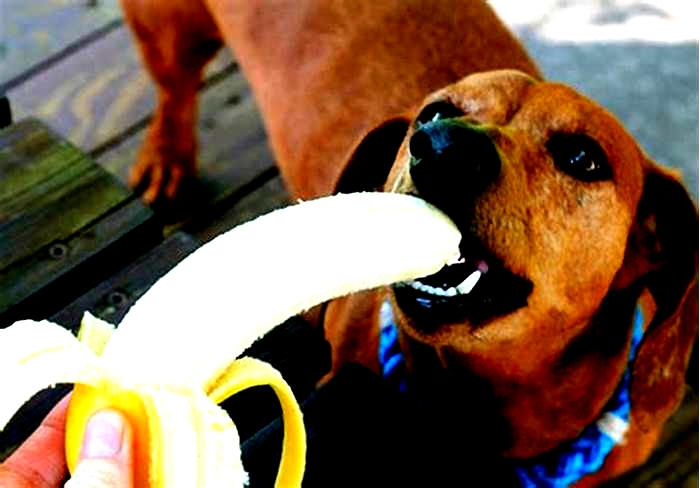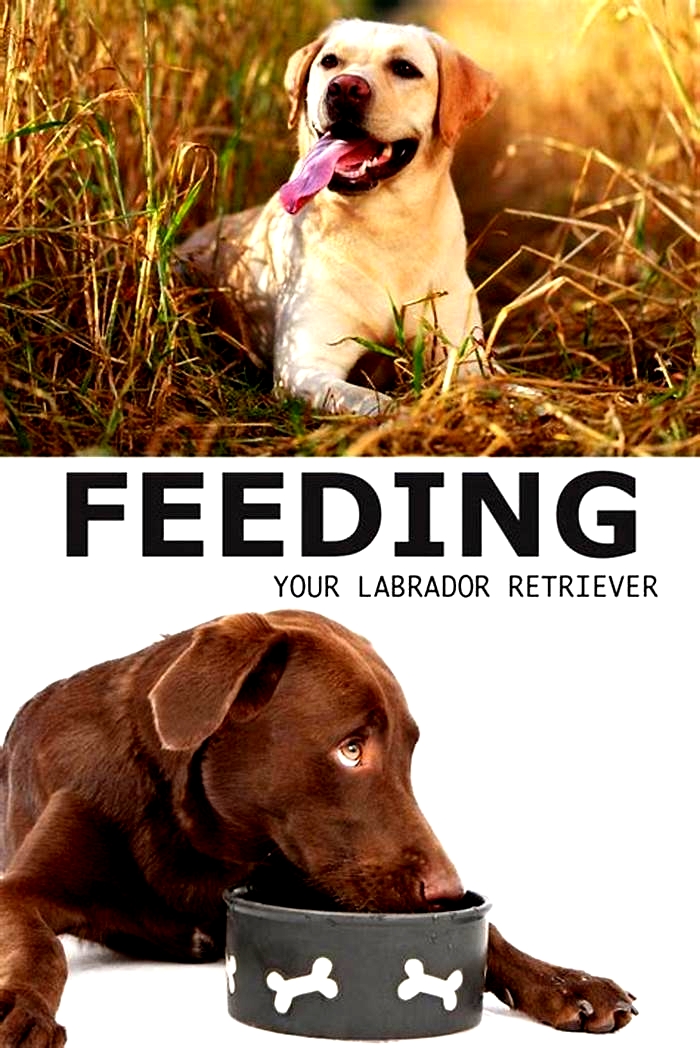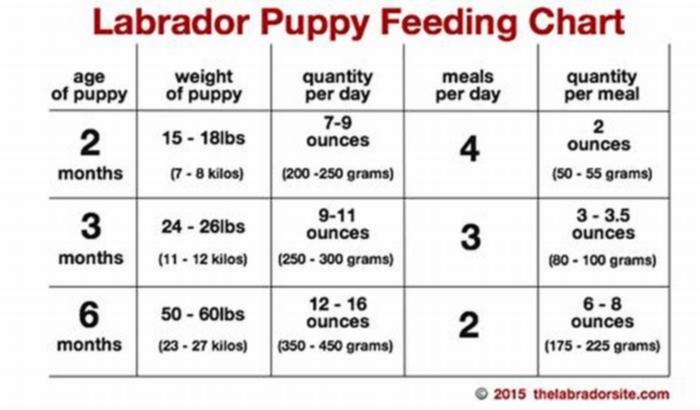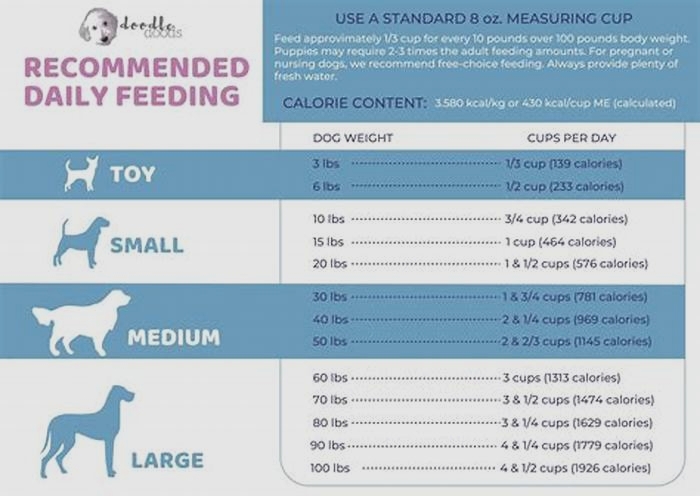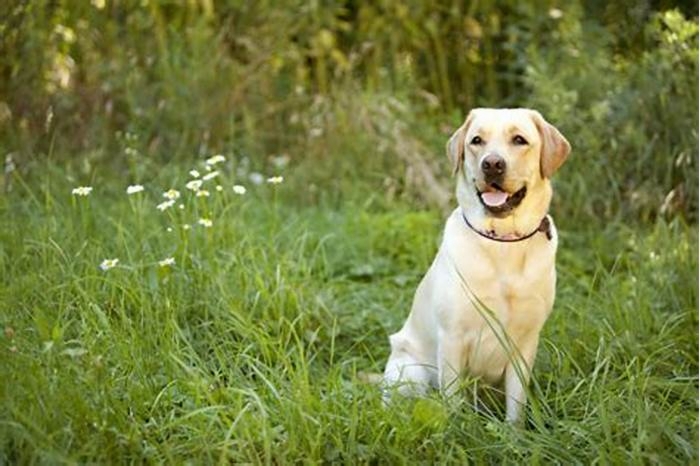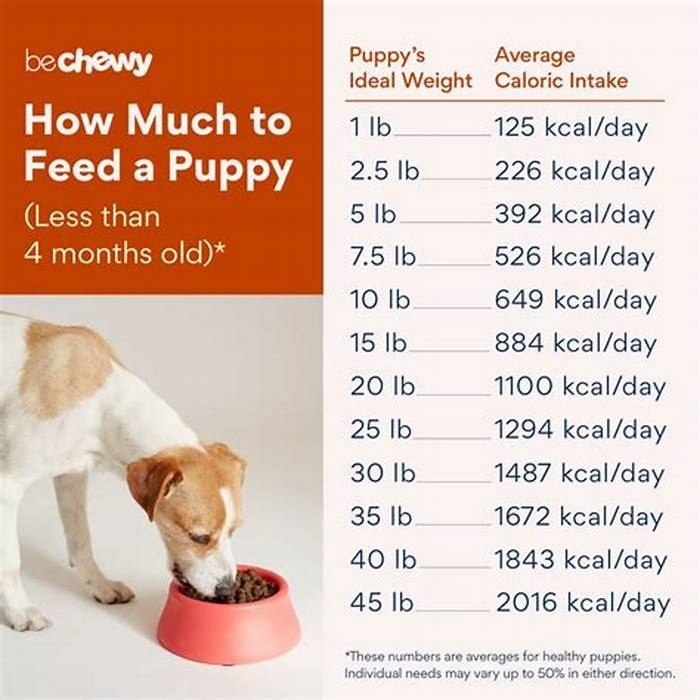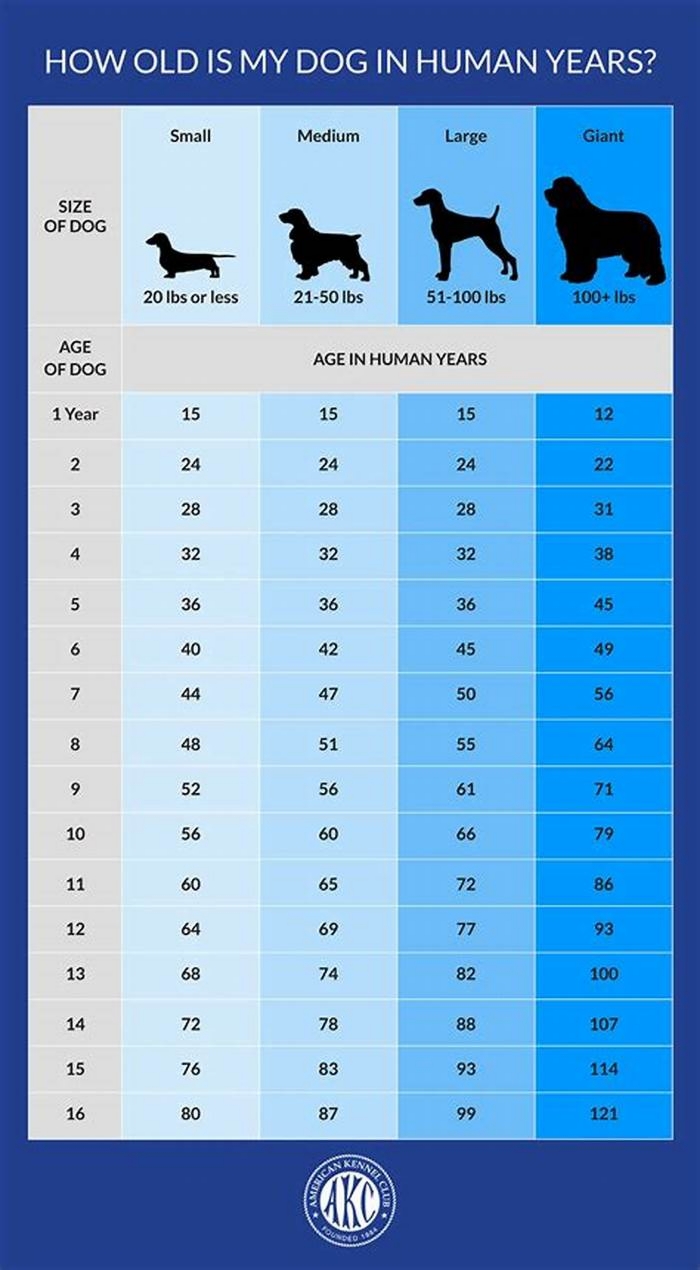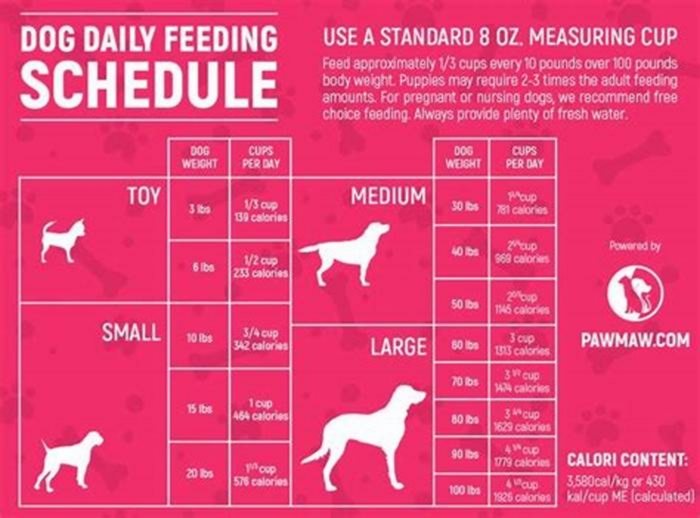Can a Labrador eat banana

Can Labradors Eat Bananas?
Labradors are generally healthy dogs and can eat a variety of different foods. But can Labradors eat bananas? The answer is yes bananas are healthy food for dogs and provide many essential nutrients. Bananas are high in potassium, vitamin B6, and vitamin C and can help keep your dog healthy and happy!
So here is your answer; Yes, Labradors can eat bananas.
What are dogs generally allowed to eat
Lets get started with answering what dogs are generally allowed to eat. Dogs can eat various different things, but there are some key points to look out for. Dogs can usually eat most fruits and vegetables and meat (cooked or even raw).
Adult dogs should be fed once or twice per day. You can either give your dog one meal or divide the food up into two servings. When it comes to what you should feed them, there are a lot of options!
As I mentioned before, most fruits and vegetables, as well as cooked or raw meat, are generally okay for dogs to eat. You can also give them dry kibble, wet food, or a combination of both.
Dogs are omnivorous, which means they can eat both animal and plant-based diets without issue.
However, there are a few exceptions dogs should not eat chocolate, grapes, raisins, onions, or garlic. Seasonings are also a no-go for dogs, so be sure to leave the salt and pepper off their food.
read.. can Labradors eat Mango?
Your dogs diet should be balanced to keep him or her healthy. This includes a combination of:
- Proteins
- Carbohydrates
- Fats
- Vitamins
- Minerals
- Water
Read.. Can Labradores Eat Tomatoes?
What about bananas?
Bananas are an excellent fruit for dogs (and labradors) theyre high in potassium, vitamin B-group vitamins, and vitamin C. All of these nutrients can help keep your dog healthy and happy. (read.. can labradors eat rice?)
The benefits of feeding your Labrador a banana
The benefits of feeding your Labrador a banana are three-fold.
- First, bananas are a great source of potassium for dogs. Potassium is an essential mineral for all animals, and it helps regulate the bodys fluid balance and nerve impulses.
- Second, bananas are high in vitamin B-group vitamins, essential for cell growth and energy production. This can be especially important for active dogs, as they need all the energy they can get!
- Third, bananas are a good source of vitamin C. This vitamin is vital for immune system health and can help keep your dog healthy and free from infection.
In short, feeding your Labrador a banana is a great way to give them some essential nutrients that they can use to stay healthy and active. So go ahead and give your Dog a banana theyll love it!
How to introduce a banana as a new food for your Labrador
The best way to introduce a banana as a new food for your Labrador is to mix it with their regular food. Start by adding just a tiny piece of banana to their meal and gradually increase the amount over time. This will help ensure that your dog enjoys the taste of bananas and gets all the nutrients they need from this fruit.
read.. what about cheese for labradors?
But If your Labrador is one of those characters that just want to eat everything youll hand them then go ahead and give them a whole banana as a snack. Just be sure to keep an eye on their intake, as too many bananas can upset a dogs stomach.
Can Dogs Eat Banana Peels?
Nope Do not let them have the banana peels. They do not contain toxins, but their high fiber content can cause an obstruction or a blockage in the digestive tract.
A banana recipe your Dog will love
The Banana Kong
- A banana
- Some peanut butter (avoid those containing xylitol! l)
- A blender
- Some toys you can fill, like a Kong
Instructions:
- Combine the banana and peanut butter until smooth.
- Fill the Kong with it and freeze.
Banana & Yoghurt Froozen
- One ripe banana, peeled and sliced
- One cup of plain yogurt
Instructions:
- Combine the sliced banana and yogurt in a blender and blend until smooth.
- Pour into a bowl, freeze, and serve.
FAQ about Labradors and bananas
How Do I Know If My Dog Has Overeaten Banana?
A dog that overeats bananas could suffer from severe symptoms such as weakness, disorientation, and collapse. Potassium is an electrolyte found naturally in foods like fruits and vegetables. When there is too much potassium in the body, it causes problems. Symptoms may include muscle cramps, nausea, weakness, confusion, seizures, and death.
Can Labradors Eat Banana Peels?
Banana peels are not toxic to dogs but hard to digest. Dogs who eat bananas may suffer from constipation or vomit. Make sure to monitor if your Labrador is pooping regularly.
What should I do If my Dog ate too many bananas?
Seek veterinarian advice. At least give your vet a brief call Hell know what to do.
Could bananas be bad for my Labrador?
Potentially yes! Dogs should never eat too many bananas. Bananas contain a lot of potassium, and overeating can lead to hyperkalemia (high blood potassium). This can cause heart problems and even death. And banana also contains a lot of sugar, making dogs gain weight. Eating too many bananas can cause blood sugar irregularities, leading to diabetis.
Summary
So there you have it Labradors can eat bananas, and theyre good for them! Bananas are high in potassium, vitamin B-group vitamins, and other good stuff.
But remember to always consult with your veterinarian before changing your Dogs diet. Sometimes a little banana can be an excellent addition to your Labradors diet, but too many can cause problems. And remember dont give them the banana peels! Theyre hard to digest and can cause an obstruction.
What Fruits Can Labradors Eat? 29 Dog-Friendly Fruits
Fruits can be a great addition to your Labradors diet. I love to feed my dog fruits such as apples or strawberries. They make a great treat, especially if your treat drawer is empty! You can also add fruits to your dogs meals to complement their diet. But what fruits are safe for your Labrador to eat?
Labradors can safely eat fruits such as apples, strawberries, bananas, raspberries, melons, peaches, pears, nectarines, and blueberries. Labs cant eat pits or the seeds of most fruits, so avoid these, and some fruits are poisonous, such as grapes and avocados.
From the juicy sweetness of apples to the tropical tang of pineapples, well delve into which fruits are safe for Labradors, how to serve them, and the health benefits they can offer.
So, whether youre looking to add a little variety to your Labs diet or simply curious about what fruits they can safely enjoy, youre in the right place.
Lets get started!

What Fruits Can Labradors Eat?
Labradors are known for their voracious appetites and are often not picky eaters, which makes it even more crucial to understand what is safe and beneficial for them.
Check out the below table for a quick guide to what fruits your Labrador can eat.
| Fruit | Can Eat | Cant Eat |
|---|---|---|
| Apple | ||
| Apricot | ||
| Avocado | ||
| Banana | ||
| Blackberries | ||
| Blueberries | ||
| Cherries | ||
| Coconut | ||
| Cranberries | ||
| Cucumber | ||
| Dates | ||
| Kiwi Fruit | ||
| Lemon | ||
| Lime | ||
| Grapes & Raisins | ||
| Grapefruit | ||
| Mango | ||
| Melon | ||
| Nectarine | ||
| Peach | ||
| Plum | ||
| Olives | ||
| Oranges | ||
| Star Fruit | ||
| Tangerine | ||
| Tomato (green) | ||
| Clementine | ||
| Pear | ||
| Persimmon | ||
| Pineapple | ||
| Raspberries | ||
| Satsuma | ||
| Strawberries | ||
| Watermelon |
Apples
Labradors can eat apples. They are a good source of vitamins A and C, calcium, phosphorus, and fiber. The vitamins are essential for maintaining healthy bones and tissue.
They also help to keep teeth clean and freshen their breath. Your Lab will enjoy the sweet taste and the crunchy texture of apples.
Cut the apple into small pieces or slices, and dont feed the cores as they can cause an intestinal obstruction.
Remove the seeds as they contain a compound called amygdalin, which is broken down into toxic cyanide by food enzymes. However, your Labrador would have to eat many apple seeds to be poisoned.
To give you an idea, according to theCenters for Disease Control and Prevention, a person weighing 70kg would have to eat around 40 apple cores to receive a fatal dose, so a Labrador Retriever weighing 35kg would have to eat 20!
Apricots
Labradors can eat apricots. They are rich in vitamins A and C and contain potassium, copper, and beta-carotene, which can help fight against cancer.
It is perfectly safe to feed your Labrador the fleshy fruit; however, dont give the pit, leaves, or stem. When chewed and digested, these parts produce cyanide and can be harmful if consumed substantially.
Again, it will require many pits to cause poisoning, and the exact number will depend on the dogs size and whether your dog chews the pits to release the chemical.
Your Labrador can enjoy a few small bites now and again. However, dont overdo it, as apricots are high in fiber, and too much fiber can lead to a tummy upset.
Bananas
Labradors can eat bananas. They are high in potassium, which can support kidney and heart function. They are also high in vitamins B6 and C, biotin, fiber, magnesium, and copper.
However, they contain a lot of sugar as they are a high carbohydrate food, so only feed them sparingly. Do not feed the peel; it may be too tough to digest.
I like giving my dog a few small banana pieces when we hike, giving her a quick energy boost. Bananas can also be served mashed or frozen and then sliced.
Blackberries
Labradors can eat blackberries. They contain many valuable antioxidants that can prevent or slow down cell damage and are loaded with fiber and vitamins A, B, C, E, and K. As they are lower in sugar than other fruits, they make an excellent choice for your Lab.
I love blackberry picking in the summer, and these sweet, juicy fruits are great to share with your Labrador.
Frozen blackberries can also be a welcome treat in the warm weather to help cool your dog down. However, some dogs may not like their taste, yet others will enjoy them.
Blueberries
Labradors can eat blueberries. They are incredibly healthy and nutritious and are an excellent snack for dogs. Blueberries are a superfood due to their antioxidant properties that help prevent cell damage and cancer and reduce inflammation. They are a great source of vitamins C and K and fiber.
They are also lower in calories and sugar than many other fruits, making them kinder to your Labs teeth.
Additionally, they contain phytochemicals. Scientists believe these compounds can help to fight cancer and heart disease.
Watch This Video To Learn 7 Best Fruits For Your Dog
Coconut
Labradors can eat coconut. It contains vitamins, minerals, fiber, and antioxidants to support your dogs immune system. It helps prevent viruses, reduces inflammation, and can even help to treat yeast infections.
Coconut oil is also great for your Labradors skin and coat. The natural oils lead to shinier fur and less dry skin.If your dog enjoys the taste of the flesh, theres no harm in giving him a couple of small pieces.
Make sure to remove the outer shell and husk, as these can be harmful if swallowed.
Also, coconut doesnt contain many proteins that people with tree nut allergies are sensitive to, so a coconut allergy is rare.
Cranberries
Labradors can eat cranberries. They are a superfood containing vitamins C, E, K, manganese, and fiber. They also have anti-inflammatory properties, and this study showed that antioxidant capacity was significantly increased in animal organs after being given cranberry juice.
These little fruits help keep cancer at bay and boost the immune system. They have antibacterial properties to help prevent and control urinary tract infections, as evidenced in this study.
However, your Lab might not like their tart taste, so you may need to mix them into your dogs food to incorporate them into their diet. They can be given raw, cooked, or dried, but avoid cranberry juice containing sugar.
Cucumbers
Labradors can eat cucumbers. They contain calcium, potassium, copper, magnesium, and biotin and are loaded with vitamins B1, C, and K. Their benefits include improving joints and connective tissue and strengthening bones. They can also help to freshen your doggies breath.
Although you are more likely to find cucumbers in the vegetable aisle in the grocery store, they are technically a fruit. Hence, its included here. It doesnt matter, though, as they have a lot of nutritional value and are healthy for your Lab to eat.
They contain around 96% water, making a great tasty treat in warm weather and helping to keep your Lab hydrated. They are also ideal for overweight dogs as they are low in calories and boost energy.
Dates
Labradors can eat dates. They are packed with many nutrients and provide several health benefits. Dates contain fiber, potassium, calcium, vitamins A, B, and C, and disease-fighting antioxidants. They are low in fat, cholesterol-free, and healthy for your Labs heart, eyes, and immune system.
Despite the confusion, dates are the fruit of the date palm tree and are usually sold dried. The confusion lies in their similar appearance to raisins (dried grapes), which are poisonous to dogs.
They are, however, high in sugar, so you will need to consider this when feeding to avoid a stomach upset, but they can be good if your Lab needs a quick energy boost during lots of exercise or play.
Ensure you remove the pit before feeding to avoid choking, or buy ones with already removed pits!
Kiwi Fruit
Labradors can eat kiwi fruit. These sweet fruits contain vitamin C, potassium, iron, and fiber, providing vast nutritional benefits. Their antioxidants help to protect against cancer and strengthen the immune system. Theyre also suitable for the digestive system.
Although the flesh is safe, its hard for your dog to digest. It contains a high amount of insoluble fiber, which can cause a stomach upset. Never feed kiwi fruit whole, but cut it into slices.
Lemon, Lime,& Grapefruit
Although the flesh of lemon, lime, and grapefruit is not toxic for Labradors, they are not recommended due to their high amounts of citric acid.
Too many of these fruits can cause stomach upset, including vomiting and diarrhea. They also provide little or no nutritional benefit for your Labrador.
Remember, too, that the digestive system of your Labrador is much more sensitive than humans!
Additionally, most dogs will not like the strong smell of these citrus fruits and wont even lick them, never mind eat them! If your Labrador does brave it and snaffles a piece, make sure you have removed the peel first.
Also, do not feed the pith (the white parts) or seeds, as these contain compounds called psoralens. These are toxic to dogs, especially if a large enough quantity is consumed. There are far better choices to choose from.
Mango
Labradors can eat mango. Slices of mango make a sweet, nutritious treat that contains vitamins A, B6, C, and E. They are also full of fiber. But they have a lot of sugar, so feed them sparingly, as too much mango can cause vomiting and diarrhea.
You should remove the skin as your Lab will find it difficult to digest. The hard pit is a choking hazard, so make sure this is also removed. If the stone is accidentally swallowed, it can cause a severe blockage of your dogs digestive system.
Serve by cutting it into bite-sized chunks, and you can also feed it frozen.
Melon
Labradors can eat melon, and its an excellent source of vitamins, dietary fiber, niacin, folate, and potassium. Its high antioxidant properties promote healthy cell function and reduce the risk of cancer and arthritis.
Cantaloupe and honeydew melon are low in calories and high in water content. Small pieces are tasty and refreshing for your Labrador, especially on hot days.
Melon does, however, have a high sugar content, so only feed in moderation. You shouldnt feed the seeds and rind as they are not easily digestible. My dog loves a chunk of melon, especially in the summer.
Nectarines, Peaches& Plums
Labradors can eat nectarines, peaches, and plums. They are good sources of beta-carotene that the body converts to vitamin A, which helps maintain healthy skin, teeth, and bones. The fleshy parts are okay for your Lab to eat, but avoid the stone to prevent poisoning, choking, or GI blockage.
These stone fruits also contain lots of fiber for healthy digestion and potassium good for heart and kidney disorders. They also contain antioxidants to prevent cancer and boost overall health and the immune system.
These fruits are pretty sugary, so you must consider that if you wish to feed them to your Lab.
Olives
Labradors can eat olives. They are perfectly safe for dogs to eat. Nutritionally, they contain many vitamins, minerals, antioxidants, and good fats. They are an excellent source of vitamin E, which is good for your Labradors eyes and immune system.
A couple of plain, unsalted olives can be a healthy snack for your Lab. But here is the caveat. You must remove the pits to prevent choking, blockages, or cracked teeth!
Dental costs are expensive and the pits contain toxic compounds. However, your Labrador would have to ingest many of these to suffer severe poisoning.
Oranges and Mandarines (Tangerine, Clementine & Satsuma)
Labradors can eat oranges and mandarins. They are loaded with vitamin C, which can benefit your dogs immune system and flush out toxins. They also contain fiber and potassium.
But there are some warnings. Like other citrus fruits, your Labrador may not like the acidic zing of oranges! However, if you find you have a citrus-loving pooch, only give a tiny amount due to their high sugar content and tartness. Too much sugar and citric acid can cause an upset stomach.
You must only feed the flesh part of the orange as the leathery peel is hard for your Lab to digest. Also, the seeds and the white pith contain toxic compounds, so avoid these. My dog turns her head away after the slightest sniff. She certainly doesnt like oranges.
Pears
Labradors can eat pears. They are high in potassium, vitamins A, C, and K, and are loaded with fiber. Vitamin K is known for increasing bone density. Pears are believed to reduce the risk of strokes and have anti-cancer properties due to their antioxidants.
Pears contain high sugar, so feed sparingly, especially if your Labrador needs to lose a few pounds. However, a few slices can be a healthy and nutritious weekly treat. Like apples, the core and seeds will need to be removed first.
Persimmons
Labradors can eat persimmons. They include a large amount of vitamins A and C. They also contain many other nutrients, such as antioxidants, fiber, potassium, manganese, folic acid, and beta-carotene.
The benefits of persimmons are that they can improve overall health and help to combat cancer. They can also reduce inflammation and help with constipation due to their high fiber. Beta-carotene produces vitamin A in the body, which is good for your Labradors eyesight.
Giving your Lab a small taste of persimmon once or twice a week is okay, and it makes a nice sweet treat. Take precautions with the seeds, as they can trigger an upset stomach, so you must remove them before feeding.
Pineapple
Labradors can eat pineapple, which can make a healthy treat as its full of vitamins, minerals, and fiber that are good for your dogs digestion and immune system. It also contains bromelain, an enzyme that provides anti-inflammatory properties.

If you wish to try your dog with a small piece, remove the prickly peel and crown first. Pineapple is also quite sugary, so only feed sparingly unless your Lab has quite a taste for this fruit and needs a quick energy boost during a long walk!
Frozen pineapple chunks make an excellent summer snack and help hydrate your Lab. Avoid canned pineapple as it contains lots of added sugar.
Raspberries
Raspberries are excellent for Labradors as they are low in sugar and calories and contain lots of vitamin C, fiber, folic acid, iron, potassium, manganese, copper, and magnesium.
They have anti-inflammatory properties that can help the joints and are perfect for senior dogs or those with mobility issues such as hip and elbow dysplasia.
Raspberries contain a tiny amount of xylitol. This natural sweetener can cause death due to its toxicity if consumed in large amounts. However, dont be put off by this, as your Labrador would have to eat an awful lot.
To put this into context, a 10kg dog would have to eat at least 32 cups of raspberries to prove fatal. As the average adult Labrador weighs three times this amount, thats a hell of a lot of raspberries!
My dog loves raspberries and enjoys them frozen when the weather is warm.
Strawberries
Labradors can eat strawberries. They contain fiber, vitamins C, B1, B6, and K, folic acid, potassium, iodine, and magnesium. They are also a good source of omega-3 alpha-linolenic acid, which keeps your Labs skin healthy and its coat shiny.
Strawberries are high in antioxidants. They can help slow the aging process, strengthen the immune system, and help with weight management. Despite their sweetness, they are surprisingly low in sugar and calories.
They also contain malic acid (along with apples) that can help keep your dogs teeth nice and white as theyre a natural enamel whitener.
Strawberries are a delicious fruit to eat. My dog adores them all year round.
Watermelon
Labradors can eat watermelon as they contain vitamins A, B6, and C and fiber to aid digestion. They also contain potassium, which helps lower blood pressure and reduces the risk of heart disease and strokes.
Watermelon contains 92% water, so its another excellent way to help keep your dog hydrated during warm spells. Everyone, including my dog, loves a nice refreshing piece of watermelon in the hot weather. Serve by cutting it into cubes.
All the fiddly seeds should be removed and dont feed the rind.
Should Labradors Eat Fruit?
Almost everything we eat plays a part in keeping us functioning like a well-oiled machine. But what about our pets? Weve just discovered that dogs can eat fruit, but should they?
Labradors can eat fruit. They provide additional nutrients, including vitamins, minerals, fiber, and antioxidants. Fruit can be a big health boost for your dog and help reduce the risk of developing many chronic diseases, including cancer.
Fruit helps to strengthen the immune system, reduce inflammation, improve skin, hair, and eyesight, and help with digestion.
Fruits are low in calories and fat and make an excellent choice if your Labrador struggles with obesity and needs to lose weight. As pet treats can be high in calories, fruits can provide a healthier alternative.
Labradors can eat fruit as dogs have adapted to an omnivorous diet through domestication. Dogs also have molars used to grind and crush plant matter, such as fruits and vegetables.
Although most good quality dog food is maximized for most dogs needs, adding fruits is a healthy complement to their diet.
The diagram below shows how domestication has influenced omnivorous dog characteristics (highlighted in white boxes).
It reflects the traditional feast-or-famine lifestyle of the wolf, the dogs carnivorous ancestor. In other words, Labs can eat animal and plant foods and remain perfectly healthy.

To discover more about exactly what your Lab can and cant eat,check out this article: Best Diet for Labradors. It has loads of info on nutrition, types of diet, how much to feed, etc.
How to Feed Fruit to Your Labrador
Here are some guidelines on how to feed fruit to your Labrador:
- Introduce fruit slowly to avoid any tummy troubles!
- First, Wash the fruit to eliminate dirt, bacteria, or pesticides.
- Remove any pits, seeds, or rind. These hazards include poisoning, choking, gastrointestinal blockage, stomach upset, or cracked teeth!
- Offer small bite-sized pieces or slices to prevent choking.
- Fruits can be mashed or pureed.
- Frozen fruits are excellent in the summer and help to keep your dog cool.
- Be wary of canned fruit, as many contain sugary syrup.
- Avoid fruit juice due to its high sugar content and acidity.
Recommended Portion Sizes
You should only feed fruits to your Labrador inmoderation. As a general guideline, the treats you give your dog should not add up to more than 10% of their total calories for the day.
The other 90% should come from dog food thats healthy and well-balanced. Its best to feed your Labrador fruit like any other snack and keep the portion size small.
Below are the recommended fruit portion sizes for feeding your lab. Its only a rough guide, as exact portions will depend on your dogs size, activity level, health, and age.
Ive also included thehazards to avoid for each fruit.
| Fruit | Portion Size | Hazard |
|---|---|---|
| Apple | 1-2 slices | Seeds & Core |
| Apricot | 1 slice | Leaves, stem & pit |
| Banana | 2-3 pieces (1-inch chunks) | Peel |
| Blackberries | 2-3 berries | |
| Blueberries | 2-3 berries | |
| Coconut | 1 slice | Shell & husk |
| Cranberries | 1 dessert spoon | |
| Cucumber | 3-5 slices | |
| Dates | Half a date | Pit |
| Kiwi Fruit | 1 slice | Skin |
| Lemon, Lime & Grapefruit | A lick to try! | Peel, pith & seeds |
| Mango | 1-2 slices | Peel & pit |
| Melon | 1 slice (1-inch chunks) | Seeds & rind |
| Nectarine, Peach & Plum | 2-3 bite-sized pieces | Pit |
| Olives | 1-2 olives | Pit |
| Oranges & Mandarines (Tangerine, Clementine & Satsuma) | 1 bite-sized segment | Peel, pith & seeds |
| Pear | 2-3 bite-sized pieces | Seeds & core |
| Persimmon | 2-3 bite-sized pieces | Pit & seeds |
| Pineapple | 1-2 bite-sized pieces | Peel & crown |
| Raspberries | 4-5 berries | |
| Strawberries | Half of a large berry sliced | |
| Watermelon | 1 slice (1-inch chunks) | Seeds & rind |
What Fruits are Toxic to Labradors?
While manypeople foodsyou find in and around your home are perfectly safe for Labradors, some are quite dangerous, so its vital to learn which fruits dogs cant eat. But first, here are a couple of tips:
Pro Tip! Take care if you grow fruit at home, as once it has fallen from the tree and decomposes on the ground, it produces ethanol (alcohol). This is an additional toxin to dogs, so they must never be left unsupervised where they have free access to fruit.
Avocado
Labradors should not eat avocados. Avocados pit, skin, and leaves contain persin, a toxin that can cause vomiting and diarrhea.
Many animals and birds are susceptible to avocado poisoning, and although dogs are less prone, serious cases result in a heart attack.
Although there is no evidence that the pulp contains persin, its high-fat content can cause your dog to suffer from pancreatitis, especially if he is sensitive. If you love Mexican food like me, keep your Lab away from guacamole!
Cherries
You must exercise caution if you decide to give your Labrador cherries. Even though the flesh of the cherry is safe, it can cause an upset stomach if eaten in large quantities.
The main danger is that the cherry pit, stem, and leaves all contain toxic cyanide, although your dog would have to eat a large amount to be poisoned.
The pit is also a danger and can cause choking. For these reasons, I dont recommend feeding your Lab cherries.
Grapes & Raisins
Grapes, raisins, and other dried variants are highly toxic to Labradors.
Scientists have still not identified the exact toxin, but its known that even a small amount can cause acute kidney failure and subsequent death. If your dog accidentally eats grapes, contact your veterinarian urgently, as treatment is critical.
Foods containing grapes are all sources of poison, so keep your Lab away from products such as baked goods, trail mix, granola, and raisin bran cereal.
Star Fruit
Star fruit is an exotic fruit that is extremely toxic to Labradors if ingested in large amounts, as it can lead to acute kidney failure.
Similar to rhubarb leaves, it contains soluble calcium oxalate. When soluble oxalate salts are absorbed from the gastrointestinal tract, they bind with the bodys calcium, resulting in a sudden drop in calcium, which can lead to acute renal failure.
The exact amount of star fruit that can poison your Labrador is unknown. Although smaller breeds are more at risk, keep star fruit away from your dog and ensure he never gets into the garbage!
Tomatoes(green)
Tomatoes are technically a fruit, so well discuss them here!
Although the ripened red fruit of the tomato is generally considered safe for dogs, the green parts of the plant and the unripened tomato are toxic.
Green tomatoes contain a substance called solanine. Although your Lab would need to ingest a large amount, solanine poisoning can cause respiratory problems, weakness, tremors, and severe stomach upset, although a large amount would have to be ingested.
Vets successfully treated this lucky 10-week-old Labrador puppy who had eaten a nightshade plant species containing solanine.
Final Thoughts
We all love rewarding our dogs with treats and experimenting with new ones, and fruits are a great option. My dogs favorites are apples, strawberries, and melon.
Remember to introduce new food gradually and in small quantities to monitor your Labradors reaction. And, of course, the mainstay of your Labs diet should be a high-quality dog food formulated to meet their nutritional needs.
Fruits are just the cherry on top a sweet, occasional treat that can bring a little extra joy and health benefits to your beloved pets life.
Related Posts You May Like:

